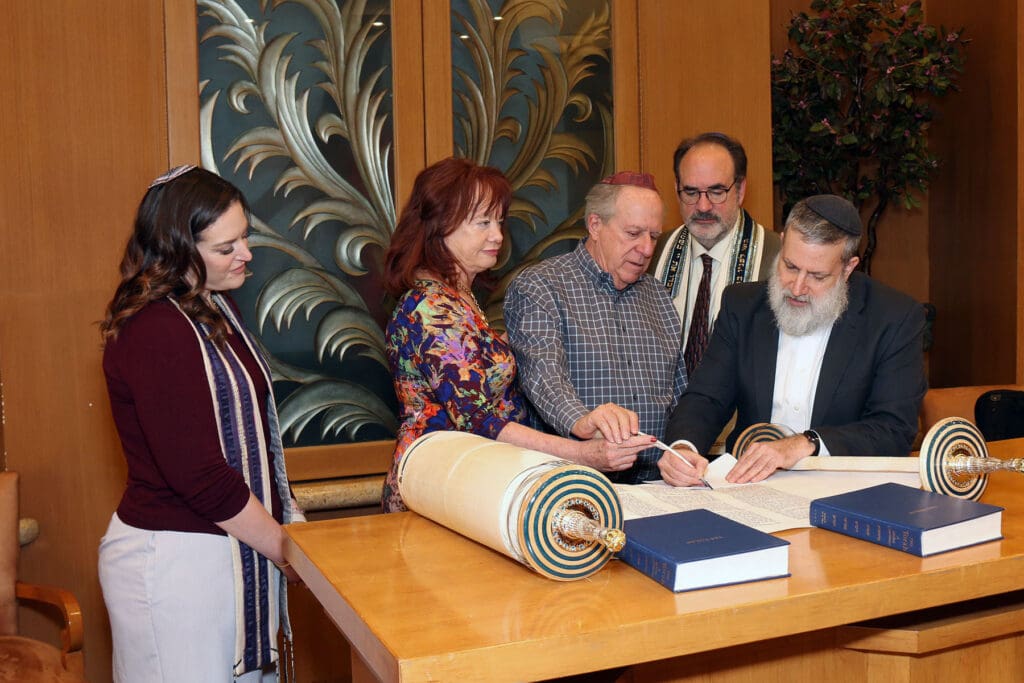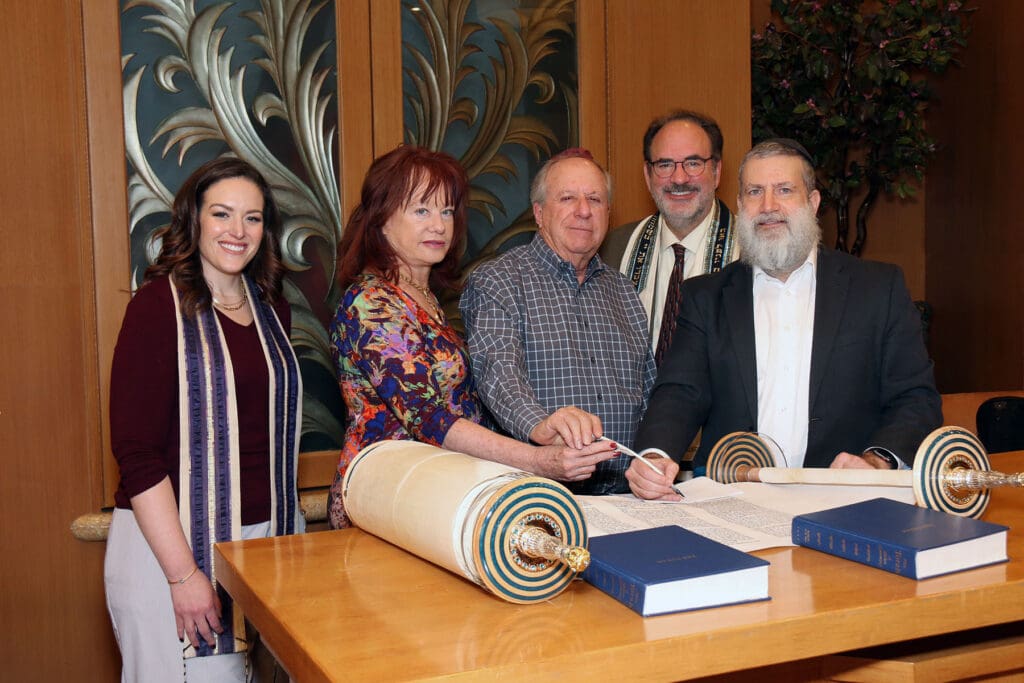

Jerry & Yvonne Gordon
The Book of Bamidbar (“In the Desert”) gets its name from its opening verse, “And G‑d spoke to Moses in the desert of Sinai . . .” It is also known as the Book of Numbers (Chomesh HaPekudim, in Hebrew), because it begins and ends with a detailed census of Israel.
Here is the book in brief:
As a sign of His love, G‑d tells Moses to count the twelve tribes of Israel, with the assistance of one representative from each tribe. The total number of male Israelite warriors (excluding the Levites) is 603,550.1 G‑d then tells Moses that the Levites are to camp around the Tabernacle, surrounded by the rest of Israel. The Israelite camp is organized into four groups, one for each side of the Tabernacle.2
The Levites are then counted (and assigned Tabernacle duties), and their number is slightly less than that of all Israelite firstborn, whom they replace as priests because of the sin of the Golden Calf. The remaining firstborn redeem themselves from their obligation with silver.3
We are introduced to the laws of the sotah (the wayward wife),4 and the nazir (who lives an austere life with no wine or other pleasures), as well as the priestly blessing, which Aaron and his descendants are to confer upon Israel.5
After the Tabernacle is completed and the princes bring special inaugural sacrifices,6 we learn more about how the Tabernacle is set up and dismantled. We also learn how Israel would travel through the desert following the Ark.7
This is followed by a long series of (mostly unfortunate) events:
- The people complain about the manna, wishing for meat. G‑d responds by sending birds for them to eat, but then punishes them with a mighty blow for their ingratitude.
- Miriam and Aaron criticize Moses for having separated from his wife. Miriam is punished with tzaraat, leprosy.9
- In anticipation of the Israelites’ imminent arrival, spies are sent to scout out the Land of Israel. They return with disparaging reports of an impenetrable terrain inhabited by giants. The people are frightened and rebel. G‑d responds by informing them that they will spend the next 40 years in the desert, during which time almost all adult males will perish.
- A man desecrates the Shabbat, and is punished by stoning.
- Korach, Dathan and Abiram lead a mutiny against Moses and Aaron. The ringleaders and their households are swallowed up by the earth; other challengers are burnt in a heavenly fire. G‑d reinforces Aaron’s position by mandating that tithes and other gifts be given to Aaron’s descendants, the kohanim.
- We are introduced to the red heifer, whose ashes are mixed with water and sprinkled upon a person who becomes impure.
- Miriam dies, and the miraculous Well of Miriam that followed the Israelites in the desert disappears. There is no water to drink, so G‑d tells Moses to speak to a rock, which will bring water. Instead, Moses strikes the rock. As a result, G‑d tells him that he and Aaron will not live to enter the Holy Land. Aaron dies and is buried at Hor HaHar.
- Amidst successful battles against Amalek, the Amorites and Bashan, the Israelites complain once again, and G‑d sends fiery serpents to punish them.
- With Israel poised to enter the Land, Balak, King of Moab, hires Balaam, a soothsayer, to curse Israel. Even after G‑d discourages him (and sends Balaam’s donkey and an angel to do the same), Balaam brings sacrifices and prepares to curse Israel. However, every time he opens his mouth, blessings flow forth instead.
- Israelite men sin with Moabite women, and G‑d punishes Israel with a plague. When a prince of Israel publicly takes a Moabite woman into his tent, Pinchas, grandson of Aaron, zealously slays them both. G‑d rewards him and his descendants with priesthood, and the plague stops.
After this terrible blow, G‑d once again has Israel counted, and the total is 601,730, slightly less than there were 39 years earlier.
We are taught the laws of the holiday sacrifices and of vows.
G‑d tells Moses to wage a punishing war against Midian. The warriors return with spoils of war, including women. Moses commands that all grown women be killed (as they had caused Israel to sin). As the spoils are divided, we learn the laws of koshering food vessels.
Although the Israelites have not yet entered the Holy Land, they have already conquered much territory. The tribes of Reuben and Gad wish to settle these territories, because the grassy lands are excellent for their livestock. After they promise to lead the charge to conquer the Promised Land before settling their own land, Moses (as G‑d’s representative) agrees to their request.
The book concludes by recounting the 42 trips that the Israelites took during their forty-year journey through the desert as well as defining the borders of the future Land of Israel. This includes cities given to the Levites, which also served as cities of refuge for those who involuntarily committed manslaughter.
The final verses of Bamidbar tell how G‑d commands the daughters of Tzelafchad to marry only their fellow kinsmen, so that their ancestral plots will remain in the tribe forever.
In his very first comment on Numbers, Rashi points out the connection between the repeated act of counting and love. One counts and recounts that which he cherishes. The Book of Numbers begins and ends with a census of Israel to show that G‑d’s love for His nation remains constant, no matter what their tumultuous trip through the desert brings.
